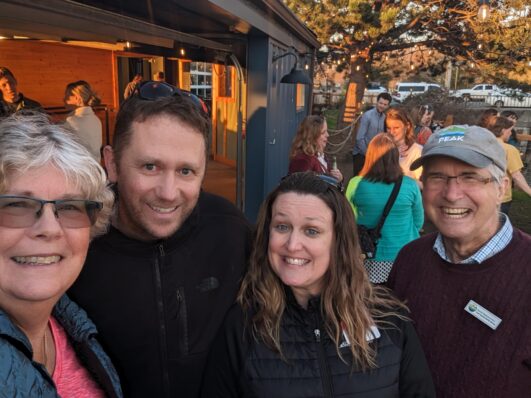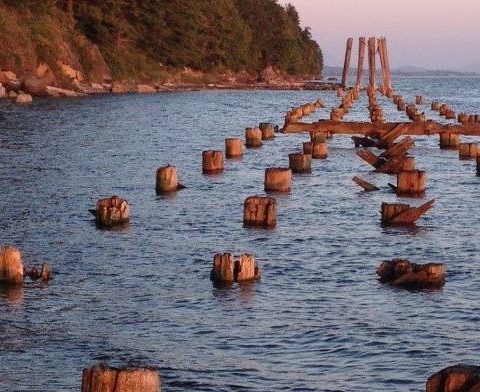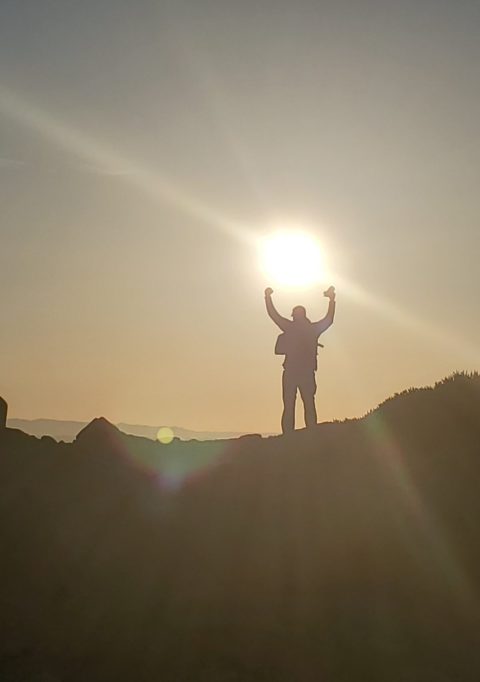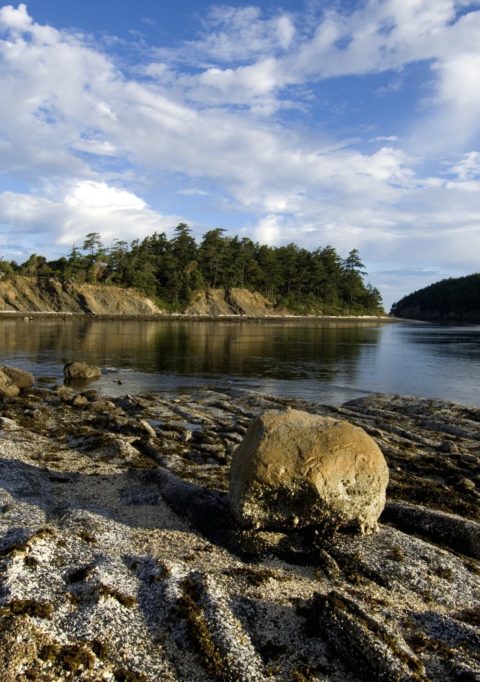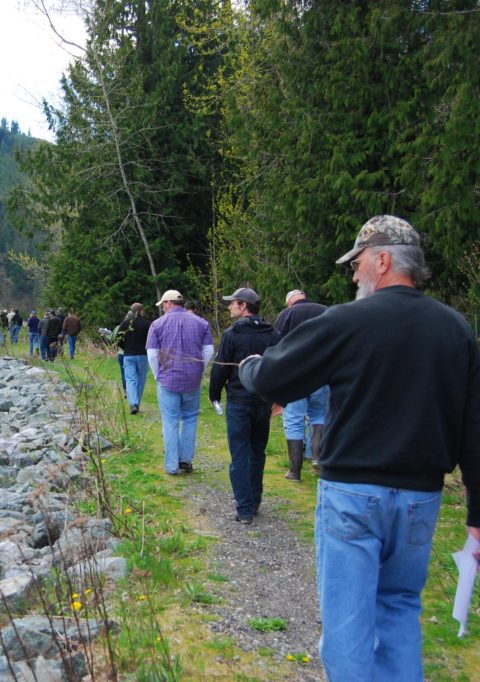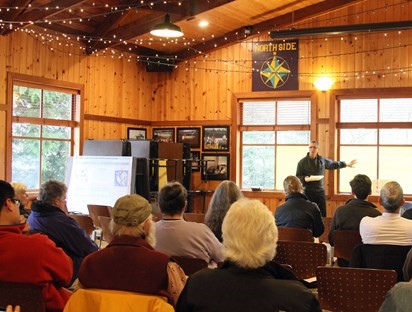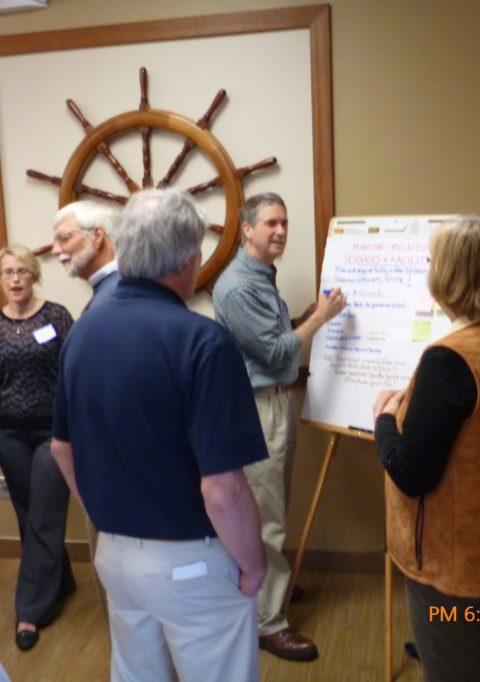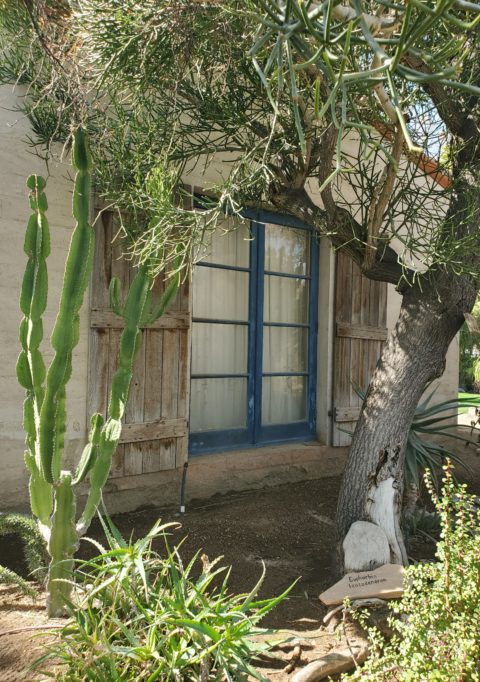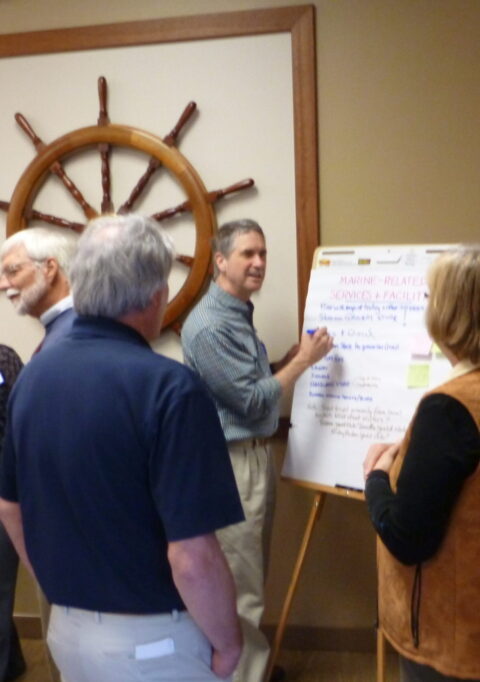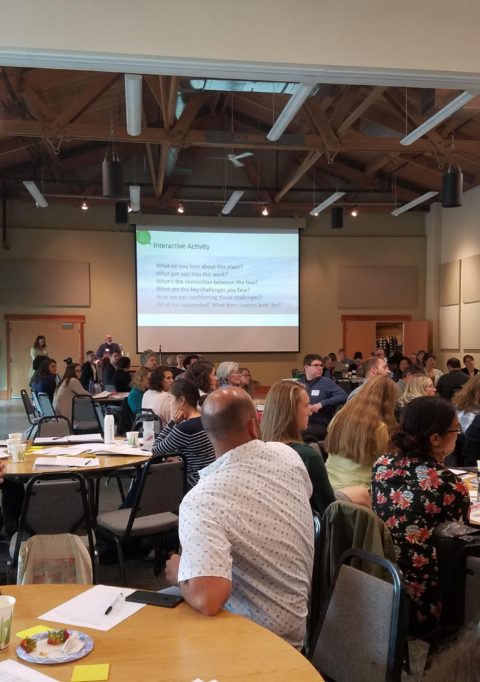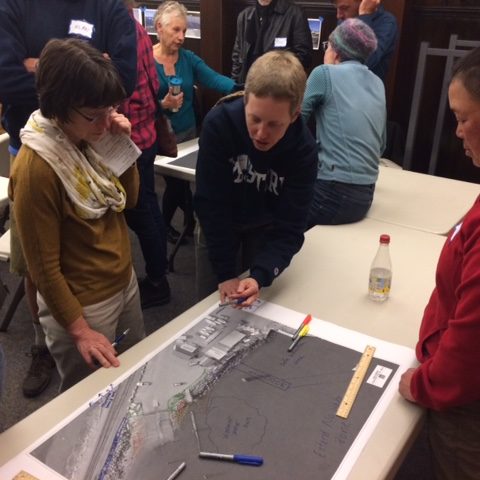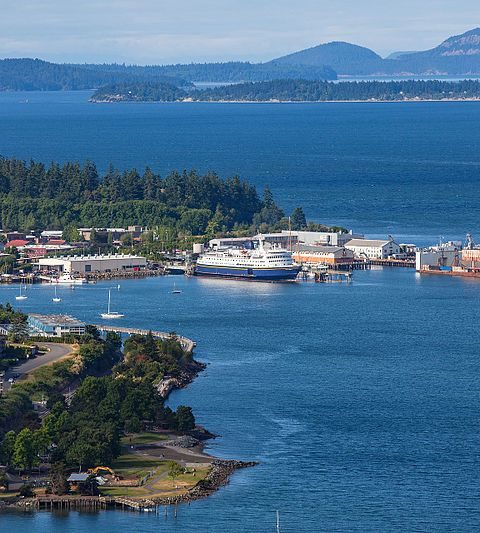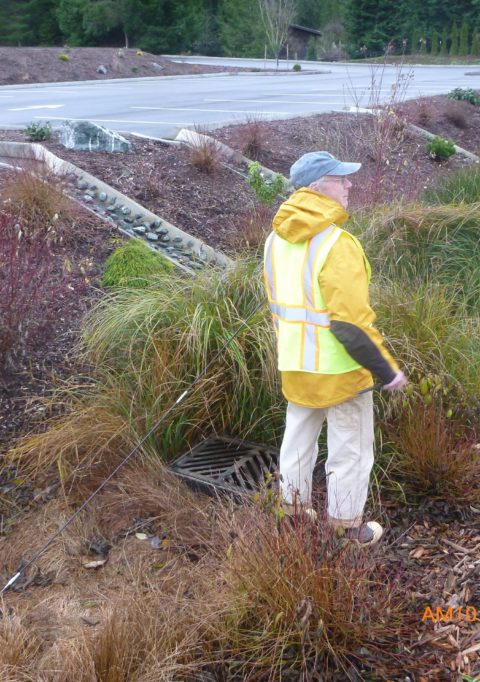Vancouver, Wash. – Maul Foster & Alongi, Inc. (MFA), a leading Pacific Northwest multidisciplinary firm, is excited to announce the acquisition of Peak Sustainability Group, a respected Bellingham, Washington-based firm specializing in climate change and sustainability services. The acquisition of Peak reflects MFA’s ongoing commitment to environmental stewardship and sustainable business practices. This partnership enables MFA…
Sustainability Spotlight: Chuckanut Builders
Peak Sustainability Group’s Kat Klass recently visited with Jenny Rae, Partner and Communications Director at Chuckanut Builders. We discussed how a locally grown construction business can thrive by focusing on creating high-quality, permanent jobs, bolstering the local economy, and embracing innovation in their field. Jenny shared how Chuckanut Builders puts its employees first, focuses on high-performance building techniques, and encourages collaboration with other businesses.
Chuckanut Builders, a member of Sustainable Connections, is based in Bellingham, WA and was founded in 2010. They specialize in residential remodeling and new construction projects in Bellingham’s core neighborhoods; they also do commercial and tenant improvement projects.
How does Chuckanut Builders’ mission embrace sustainability?
When we started the business, we saw a need for builders who were paying a living wage for employees doing year-round work. Our goal has always been to build a resilient, sustainable community, and we do that by supporting our crew. We have a good benefits package and we’re building a business that people want to come to work for. We’ve realized our mission is always evolving, but at heart, it will always be about taking care of our crew.
There’s this perception in the building industry that construction work is largely seasonal. That’s a hard way to make a living.
Were there any silver linings that came out of the pandemic?
In the early part of COVID, we couldn’t start any new projects, so we only had existing projects for a certain period of time. One change that came out of necessity was moving to a four-day work week, which we’d discussed before as a smart business move, but we hadn’t been sure how it would work. The pandemic forced us to make the change.
We wanted to make sure everybody had work for as long as possible, so we suggested shorter weeks and shifted to four nine-hour days each week. Our people loved it. We’re getting as much work done, and it’s cost-effective. We’ve been doing it for a year and a half, and we’re sticking with it.
What’s on the horizon for Chuckanut Builders?
One of our goals this year is to apply to become a B Corp. We’ve been working on the application, highlighting the areas with room for improvement, and using it as a guide for our planning.
We also want to do as many high-performance building projects as possible. A lot of that is determined by what people want to build. However, on every job we’re pushing for sustainability measures that make sense for that project.
Currently, we’re in a collaborative group with other businesses that are interested in becoming B Corps. We’re all in different industries, but we have very similar values for our businesses. For example, at a recent meeting we discussed each business’s employee review policy and how they set wages. All of us so appreciate having that place to bounce ideas off other business owners.
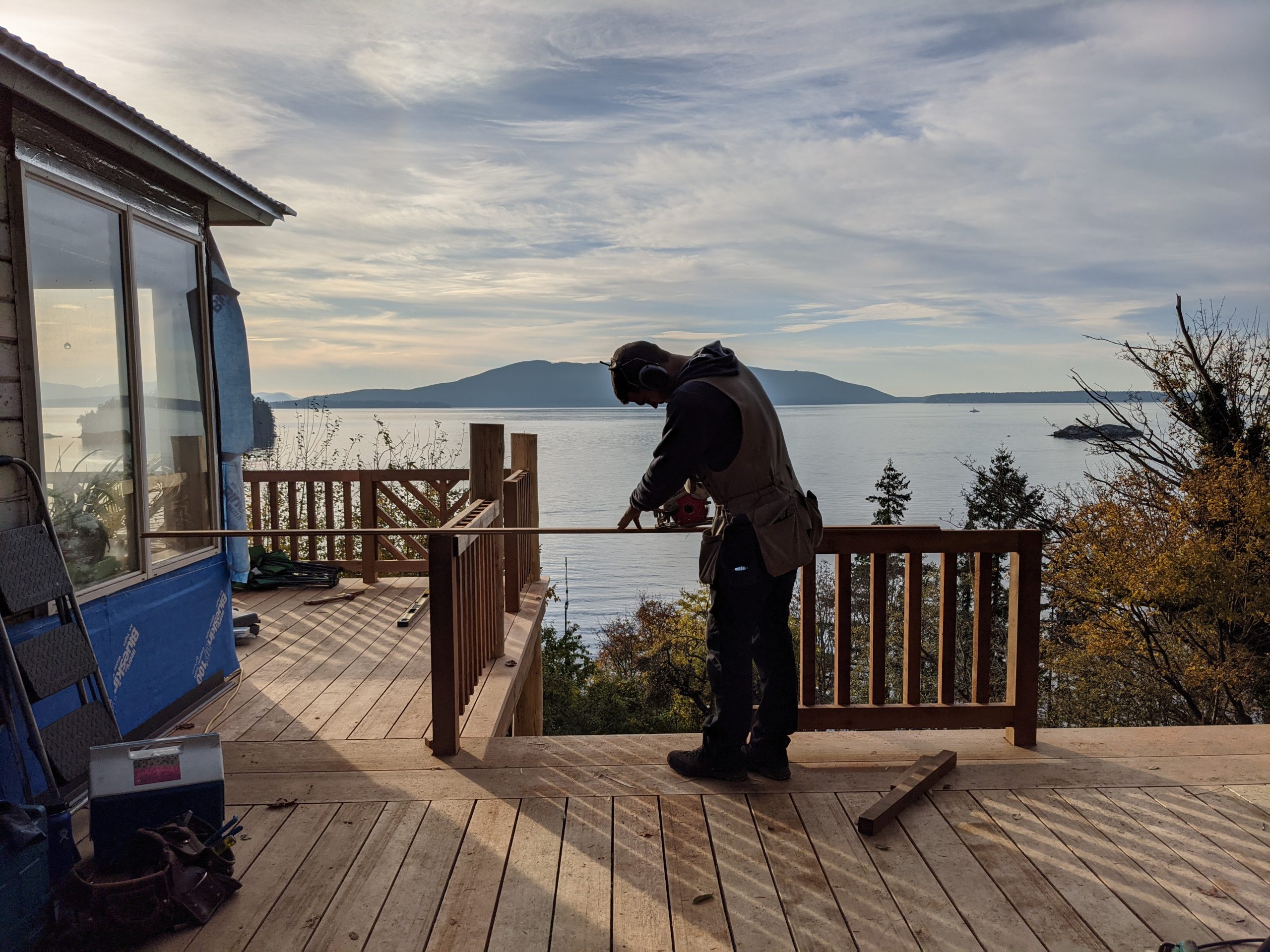
Chuckanut Builders is committed to green building and a crew that enjoys the challenge of helping clients reduce their carbon footprint.
Building construction and operation accounts for 38% of global energy-related emissions. How is Chuckanut Builders working to be part of the solution?
Here are a few of the things we do to reduce our carbon footprint in this more carbon-intensive industry.
We always try to implement high-performance building techniques, like air sealing, effective insulation, windows, and durable, healthy materials. We consider material sourcing, production methods, lifespan, and disposal in our decisions. PaperStone is one of our favorite countertop materials – it’s made from recycled cardboard and wax resins and produced locally in Aberdeen, WA! We also encourage folks to choose enduring designs that won’t need to be updated or replaced.
We are community-focused, so we always buy local when we can. Hardware Sales and Bellingham Millwork are some of our favorite vendors… it’s good for us and good for them.
On a smaller level, we combine store trips. We have crew members who go to Hardware Sales, get everything we need, and then deliver it to job sites. Additionally, most of our work is done within city limits, which means we don’t have to commute as far. Driving less lowers our transportation footprint.
Can you talk about some of the other sustainability initiatives in place at Chuckanut Builders?
We’ve been working on our benefits package by improving our health insurance offering and adding a 401k matching benefit.
We also pledge to give 3% of our profits as donations. As part of that, we worked with Bellingham Bay Builders and A1DesignBuild to create the Building Diversity endowment at Bellingham Technical College to reduce financial barriers so that BIPOC students can find meaningful living-wage employment in an essential local industry.
A portion of that 3% is going toward funding the endowment now, but once that’s set up, we’ll be able to work more closely with other groups. Whatcom Land Trust is an organization that’s close to our hearts. Last summer, we donated to Vamos Outdoors in support of their Saturday Parks Program in Skagit County. The program is a partnership with the Burlington-Edison’s GearUp program, which serves middle and high school students in GearUp. We also support the Whatcom Mountain Bike Coalition, anything housing-related, mountain rescue, and other programs that prioritize green building and the preservation of wild places.
How does sustainability connect with encouraging more women in the construction industry?
Throughout our hiring process, we focus on company culture and stress the importance of strengthening our community with new hires. This demonstrates our commitment to making work a meaningful and realistic part of our employees’ lives. Regarding potential hurdles for women entering the trades, it’s been said that ‘you can’t be what you can’t see.’ This concept has held back many industries from attracting a more diverse workforce – applicants tend not to approach a business if they don’t see people like them on job sites, in offices or in leadership.
The construction industry is one of the most male-dominated industries in the country, with women accounting for only 9% of the workforce. I, for one, would love to see that change! Sustainability is not just about environmental initiatives; it’s about people too.
What about Chuckanut Builders are you most proud of?
We talk a lot about our employees, and we focus on getting the right people in the right jobs. We do our best to ensure that they’re paid well, and they get what they need at work. I’m proud of our crew and how great they are. We built a business that really supports their crew, and for us, that’s a big deal.
Thinking about when we started the business 11 years ago, we didn’t have a vision of owning a business downtown and growing to a certain size. The journey of Chuckanut Builders was in response to the events of our lives. To see that we’ve gotten here has been exciting and fun.
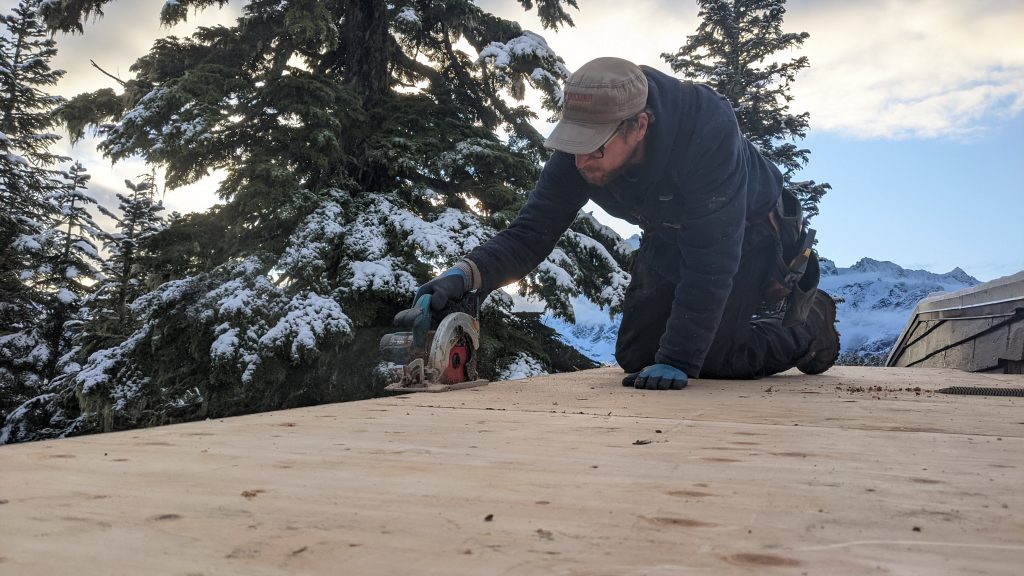
Committed to craft and crew – Chuckanut Builders
Where do you think Chuckanut Builders can improve or grow?
We don’t have any plans to grow past more than 20 employees; our sweet spot is between 16-20 crew members. Most of our employees are with us long-term, and we don’t have a lot of turnover.
Right now, we’re at a point of refinement. Our big goal right now is that we have a business with clear systematized processes. It’s not a very sexy answer, but it’s true. Those pieces are in place, but they’re not perfect. The next few years are about dialing those in, making sure everything is documented, and maintaining that system.
Do you have any advice for other businesses wanting to improve their business’s sustainability?
We did a business book club a few years ago where we worked through Traction: Get a Grip on Your Business. The accountability of being in a group was awesome, and we all still use the documents that we got from it in our business.
Sometimes business owners believe that they have to do it alone. We’re not like that! We’re not afraid to ask people what they’re doing, to ask for help, and to give help.
Peak Sustainability Group’s consultants can help businesses work through the B Corp process, create a sustainability plan, calculate your business’s carbon footprint, or engage employees in a strategic sustainability planning process. For businesses to grow in their sustainability journey, our guidance can efficiently direct focus towards analyzing business systems, evaluating packaging options, looking at waste, measuring environmental impact, completing a greenhouse gas inventory, and advising on third-party certifications.
Email hello@peaksustainability.com to schedule a 30-minute free consultation to see if we are the right fit for your needs.

